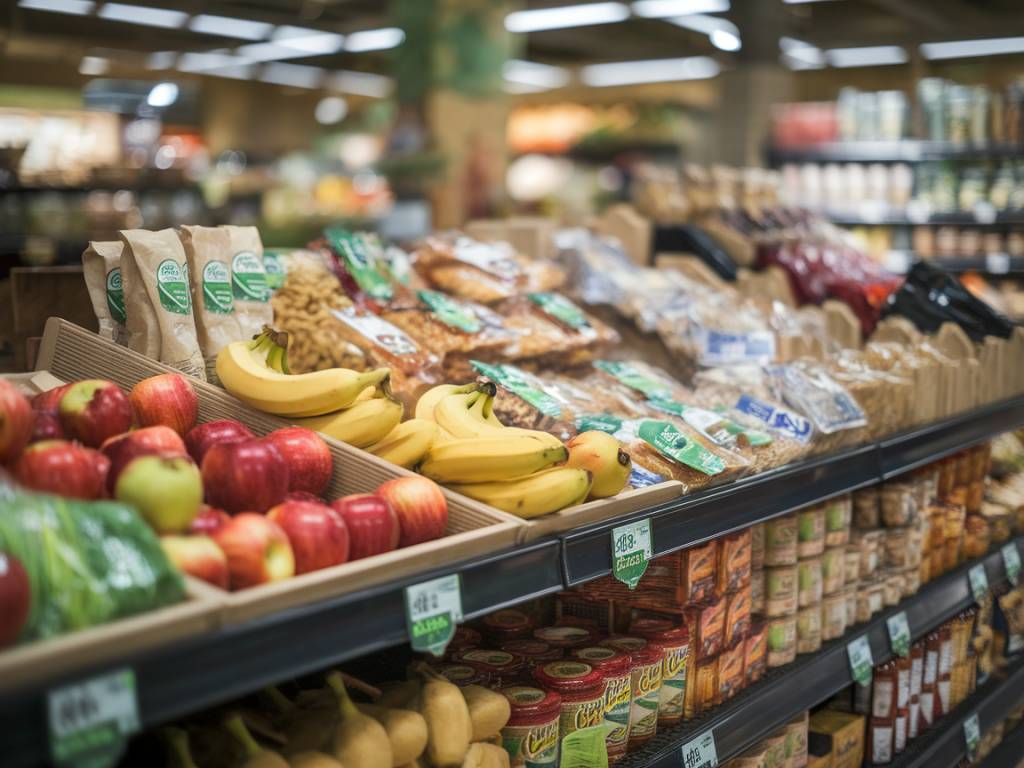Organic products are everywhere these days – from fresh produce to skincare, and even clothing. But have you ever wondered what the « organic » label on your favourite avocado or eyeliner really means? Shopping for organic goods can feel like navigating a maze of stickers, certifications, and marketing gimmicks. Don’t worry, though; I’m here to demystify it all for you.
What Does « Organic » Really Mean?
First things first, « organic » isn’t just a trend – it’s a set of standards. These standards vary depending on where you’re located, but generally, organic farming avoids synthetic chemicals, like pesticides and artificial fertilizers, and focuses on practices that are better for the environment. For livestock products, the focus includes providing ethical living conditions and not using antibiotics or growth hormones.
But here’s the catch: Just because something says « organic » on the label doesn’t mean it’s 100% organic. Products can often contain a mix of organic and non-organic ingredients, which is why certifications exist to help clarify things.
Understanding Organic Certifications
Ever noticed logos like the USDA Organic seal or the EU Organic Farming logo? These certifications are your best friends when shopping for organic products. They indicate that the product has met specific standards set by a regulatory body.
- USDA Organic: In the U.S., products with this label must be made of at least 95% organic ingredients. The label guarantees no GMOs, synthetic fertilizers, or harmful pesticides.
- EU Organic Farming: Products carrying this logo adhere to European standards that prioritize sustainable farming practices. It also ensures at least 95% organic ingredients.
- Soil Association: A UK-based certification, the Soil Association label is stricter than some others and covers additional aspects like ethical sourcing and packaging.
When in doubt, look for these logos to verify if you’re truly getting what you pay for.
Is Every « Organic » Claim Trustworthy?
Short answer? Not always. Just because a product has the word « organic » on its packaging doesn’t mean it’s officially certified. Terms like « natural » or « eco-friendly » are often slapped onto products to give off a green vibe, but they have no legal definition in many countries. That’s called greenwashing, and it’s surprisingly common.
Imagine this: You’re shopping for shampoo and come across one in a green bottle with “organic” written in bold letters. Unless it’s certified, the shampoo might only contain one organic ingredient while the rest are synthetic. Reading the label and scanning for a certification symbol can save you from falling for this trick.
Is Organic Always Better?
The answer depends on your priorities. Are you looking to reduce your exposure to synthetic chemicals? Are you concerned about the environmental impact of conventional farming? If so, organic products can align better with your values.
For example, organic strawberries may contain fewer pesticide residues compared to conventionally grown ones, but they can also be more expensive. Similarly, while organic beauty products often avoid harsh chemicals, the effectiveness of these products can vary.
On the flip side, some argue that local non-organic produce can have a smaller carbon footprint than organic produce shipped from halfway across the world. It’s worth weighing the trade-offs based on what matters most to you.
Tips for Shopping Organic on a Budget
Organic products often come with a higher price tag, but that doesn’t mean you can’t enjoy them on a budget. Here are a few tips to get the best bang for your buck:
- Buy seasonal produce: Organic fruits and veggies are typically cheaper when they’re in season. Bonus? They’re fresher and tastier, too!
- Shop at local farmers’ markets: You may find organic produce for less, and you’re supporting small-scale farmers at the same time.
- Check the « Dirty Dozen »: Environmental Working Group (EWG) publishes a list of fruits and veggies with the highest pesticide residues. Focus on buying these items organic and save on others.
- Sign up for subscription boxes: Many companies offer organic food delivery boxes at discounted rates when you subscribe.
- Choose « organic-lite »: If 100% organic isn’t in the budget, look for products marked « made with organic ingredients, » which might strike a good balance between quality and cost.
Spotting Organic Beyond Food
Organic isn’t limited to food – it extends to beauty, textiles, and even cleaning supplies. When shopping for these products, the same rules apply: Look for certifications and scrutinize labels.
For instance, in the beauty aisle, certifications like COSMOS Organic or USDA Organic ensure that the products meet organic standards. In fashion, brands using organic cotton often highlight certifications such as GOTS (Global Organic Textile Standard) to back their claims.
Remember, if it sounds too good to be true (« 100% organic miracle anti-aging serum for £5! »), it probably is. Always do your research!
The Bottom Line
When it comes to shopping organic, knowledge is power. By understanding certifications, spotting greenwashing tactics, and prioritizing what matters most to you, you can make informed decisions without falling victim to misleading claims.
So, the next time you’re deliberating between organic quinoa or conventional, or eyeing that eco-chic lipstick, you’ll have the tools to assess whether it’s truly worth adding to your cart.
What are your go-to tips for shopping organic? Share them with me in the comments below – I’d love to hear your thoughts!
